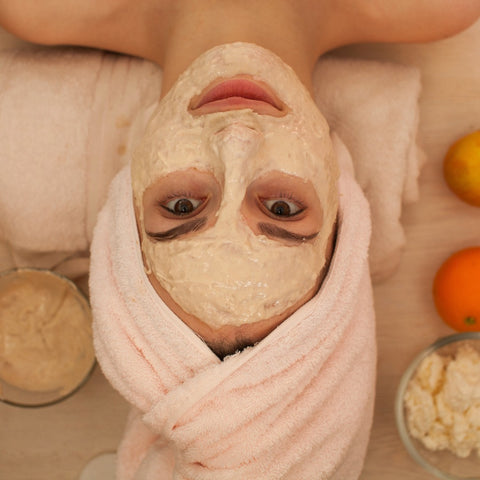Clay has been used in skincare for centuries, valued for its natural ability to cleanse, detoxify, and rejuvenate the skin. A good face clay mask can help draw out impurities, reduce redness, and promote a healthy glow. Whether dealing with clogged pores, dull skin, or excess oil, clay masks provide a simple yet effective solution. They can also gently exfoliate, removing dead skin cells and promoting a smoother complexion.
Types of Clay Used in Face Masks
Several types of clay are commonly used in face masks, each offering unique benefits for different skin types:
-
Bentonite Clay: Known for its strong absorbent qualities, bentonite clay is particularly effective for oily and acne-prone skin.
-
Kaolin Clay: A milder clay, kaolin is suitable for sensitive skin, helping to cleanse and soothe without causing irritation.
-
French Green Clay: Rich in minerals like magnesium aluminum silicate, this clay is often used to tighten pores and reduce inflammation.
-
Rhassoul Clay: Originating from Morocco, rhassoul clay is known for improving skin texture and elasticity, leaving the skin feeling soft and smooth.
-
Fuller’s Earth: This clay is often used to lighten blemishes and absorb excess oil, making it ideal for those with oily or combination skin types.
Complementary Ingredients in Clay Masks
The effectiveness of a face clay mask can be enhanced with additional ingredients that complement the clay’s properties. Ingredients like aloe vera juice provide hydration and reduce irritation, while charcoal can boost the detoxifying effects of the clay. Essential oils, such as sunflower seed oil and kakadu plum extract, add nourishing properties. Hyaluronic acid and glycerin help maintain hydration, while tocopheryl acetate (Vitamin E) provides antioxidant benefits. Many clay masks also include anti-inflammatory agents like cetyl alcohol and cetearyl alcohol to soothe sensitive skin.
Benefits of Regular Use
Incorporating a face clay mask into your skincare routine can lead to several benefits. Regular use can help manage oil production, minimize the appearance of pores, and keep skin clear of breakouts and blackheads. Over time, these masks can contribute to a smoother, more even skin tone, especially when used consistently. Applying an even layer of a purifying blue clay mask, for example, can brighten the complexion and unclog pores, leaving the skin feeling refreshed. After rinsing with warm water, the skin should feel hydrated and soft, with a noticeable reduction in dullness and dark circles.
Choosing the Right Clay Mask for Your Skin Type
Selecting the appropriate clay mask depends largely on your skin type and specific skincare needs. For example, individuals with oily skin might opt for a mask containing bentonite clay and citric acid to help exfoliate and detoxify the skin. Those with dry skin may benefit from other clay masks that include hydrating ingredients like hyaluronic acid and sunflower seed oil. Sensitive skin types should look for gentle formulations with soothing agents like dehydroacetic acid and potassium sorbate to avoid irritation. Understanding your skin’s needs is key to choosing a mask that will offer the most benefit.
The Importance of Quality Ingredients
The quality of a face clay mask is not only dependent on the type of clay used but also on the formulation as a whole. Ingredients like titanium dioxide and sodium benzoate ensure the mask's stability, while cetearyl olivate helps to improve the skin feel and reduce dryness. Using high-quality ingredients ensures that the mask is both effective and gentle on the skin. For those interested in private label cosmetics, it’s important to work with a manufacturer that prioritizes ingredient integrity and has a strong research and development process.
Understanding the ingredients in your face clay mask can help you make informed choices that benefit your skin. Whether you’re dealing with oily skin, sensitivity, or simply want to maintain a healthy complexion, there’s a clay mask that can meet your needs. Always rinse the mask thoroughly with warm water to remove dirt and impurities, leaving your skin with a smooth, healthy glow. For those interested in exploring or developing their own skincare products, please contact us.
